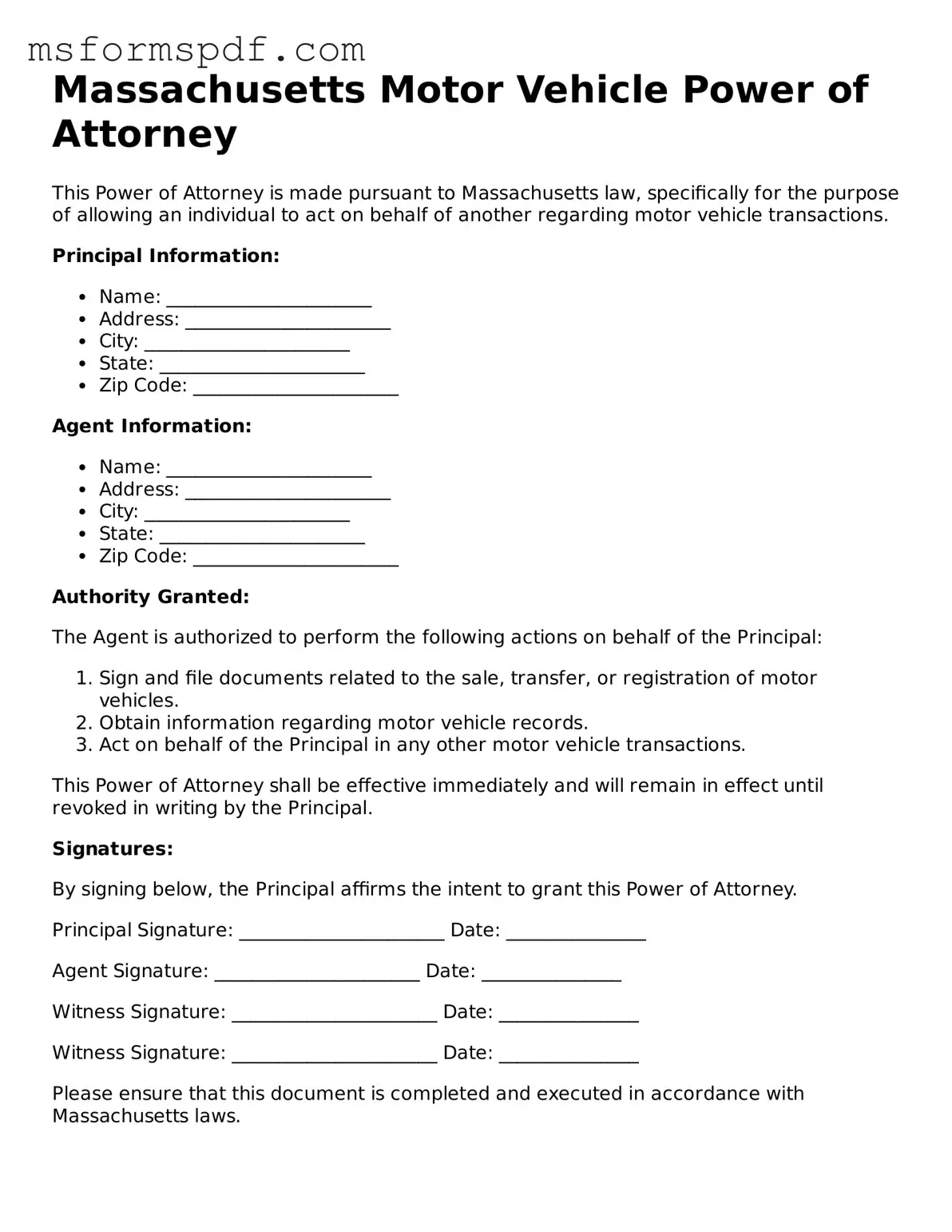Blank Massachusetts Motor Vehicle Power of Attorney Document
The Massachusetts Motor Vehicle Power of Attorney form is a legal document that allows one person to authorize another to act on their behalf in matters related to motor vehicles. This form is particularly useful for individuals who may be unable to handle vehicle transactions themselves, such as buying or selling a car. By granting this power, the principal ensures that their interests are represented effectively and efficiently.
Launch Editor Now

Blank Massachusetts Motor Vehicle Power of Attorney Document
Launch Editor Now

Launch Editor Now
or
➤ Motor Vehicle Power of Attorney PDF Form
Just a moment — finish the form
Fill out Motor Vehicle Power of Attorney digitally — no scanning, no printing.